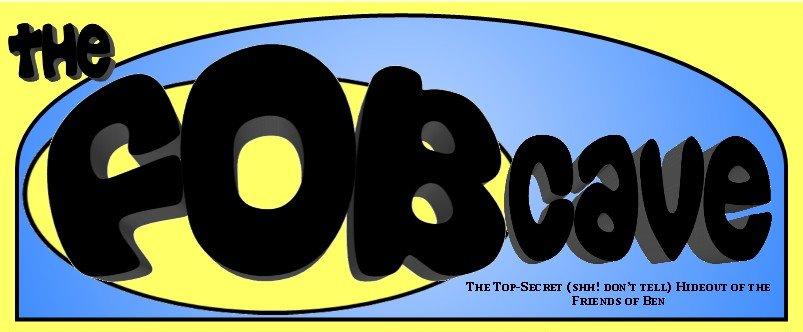 For eight years during the nineties--the years when I was most immersed in the world of superheroes--the monthly adventures of the Flash were written by Mark Waid. Waid had taken over the title in 1992, six years after the previous Flash had died and then been replaced by his teenage protege, Wally West. Since donning the Flash identity, Wally West had been portrayed mostly as a womanizing, junk food-eating, cocky twenty-year-old kid. Six years later fans still clamored for the return of his predecessor, who was generally considered the One True Flash. In Waid's eight years on the character, Wally grew up, settled into a responsible adult relationship, and accepted his role as the Flash. Not coincidentally, fans also began to accept him in the role.
For eight years during the nineties--the years when I was most immersed in the world of superheroes--the monthly adventures of the Flash were written by Mark Waid. Waid had taken over the title in 1992, six years after the previous Flash had died and then been replaced by his teenage protege, Wally West. Since donning the Flash identity, Wally West had been portrayed mostly as a womanizing, junk food-eating, cocky twenty-year-old kid. Six years later fans still clamored for the return of his predecessor, who was generally considered the One True Flash. In Waid's eight years on the character, Wally grew up, settled into a responsible adult relationship, and accepted his role as the Flash. Not coincidentally, fans also began to accept him in the role.One of Waid's running motifs during his run on The Flash was the opening line of each issue, which was always some variation of "My name is Wally West. I'm the Flash, the fastest man alive." Each issue was then narrated by Wally, with caption boxes revealing his thoughts as he battled supervillains and rescued innocents at superspeed. The concept was that Wally's thoughts moved at such speeds that he could have a two-page interior monologue in the two milliseconds it took him to run across town. I don't know how that concept works scientifically, but as a character and story concept, it worked quite well. So well, in fact, that this narrative device became associated with the character and Waid's successors continued to use it until Wally disappeared in 2006 and was replaced by his teenage protege, Bart Allen.
Now, a year later, Bart has been killed and Wally is back. Wally's return to the role of the Flash corresponds with Mark Waid's return, after seven years away, to the writing credits of The Flash. As Waid's Flash was consistently one of my favorite comics when I was growing up, I was happy to hear of his return. The news was, in fact, one of the motivations behind my recent return to weekly trips to the comic book shop. Alongside the excitement of seeing one of my favorite writers writing one of his favorite characters again, though, was a bit of fear, an acknowledgment that as fun as nostalgia is, you can't go back in time. If Waid is going to attempt to recreate his glory days and bring us back to the Flash of the nineties, I'm afraid it would feel too much like running backwards.
So I picked up All-Flash #1 last month with this mix of excitement and fear. The issue started out with the familiar "My name is Wally West. I'm the Flash, the fastest man alive," and I was brought back immediately to the nineties. Wally sped through the issue, tracking down the villain responsible for his successor's death, narrating the journey along the way, and I was a fifteen-year-old again, lost in a fantasy world of superpowers, tights, and creative rewriting of the laws of physics. Then towards the end of the story, Wally is talking to his aunt, his thoughts running parallel to their conversation, and she says, "Stop it. Stop with the interior monologue, Wally. I know you're thinking of a million other things while you're talking to me. If you're going to be the husband and father your wife and children need, you're going to have to learn to be present with the people you're talking to."* And with that, the interior monologue stops.
I love that Waid did this. Assuming he follows through in future issues, this is a bold move: removing one of the most recognizable characteristics of his previous stint as writer of The Flash, arguably one of the things that made the series great. It needs to happen, though, if he's going to move forward and not simply relive the nineties. I also think it's a great moment in terms of character development. As his aunt points out, Wally is now a husband and father. Such relationships require, above all, presence and mindfulness.
Now, if only Mark Waid would write the interior monologues out of my life, I'd be set.
*Dialogue liberally paraphrased because I don't have the comic with me at the moment.

.
ReplyDeleteCan Wally continue to exist as a fictional character if he is not conducting his interior monologue? This sounds like a serious postmodern crisis to me.
.
ReplyDeleteOops. That's me.